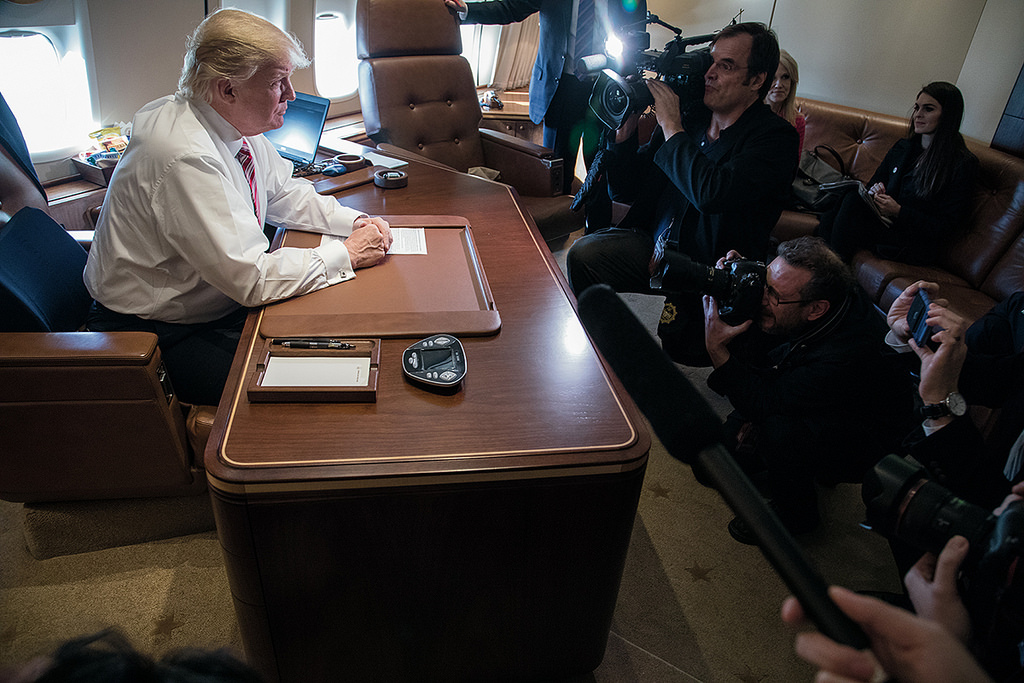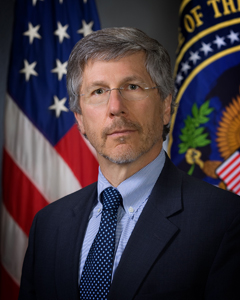The President Is Wrong to Accuse the FBI of Treason
With all of the attention paid to President Donald Trump’s confusing tweets about the Foreign Intelligence Surveillance Act and his profane description of African nations, another comment he made recently should not escape notice. According to the Wall Street Journal, he accused an FBI agent of treason:

Published by The Lawfare Institute
in Cooperation With

With all of the attention paid to President Donald Trump’s confusing tweets about the Foreign Intelligence Surveillance Act and his profane description of African nations, another comment he made recently should not escape notice. According to the Wall Street Journal, he accused an FBI agent of treason:
In an interview with The Wall Street Journal, Mr. Trump, unprompted, labelled as “treason” a text message written by Peter Strzok, an agent at the Federal Bureau of Investigation who until late July was a top investigator on the special counsel’s team investigating whether Russia colluded with associates of Mr. Trump to influence the 2016 presidential election.“A man is tweeting [sic] to his lover that if [Democrat Hillary Clinton] loses, we’ll essentially do the insurance policy. We’ll go to phase two and we’ll get this guy out of office,” said Mr. Trump, giving his interpretation of Mr. Strzok’s message.
“This is the FBI we’re talking about – that is treason,” the president said.
“That is a treasonous act. What he tweeted to his lover is a treasonous act.”
This inflammatory statement is deeply troubling.
First, it is legally wrong. The Constitution specifies that “Treason against the United States, shall consist only in levying War against them, or in adhering to their Enemies, giving them Aid and Comfort.” Peter Strzok’s message cannot possibly be construed as levying war against the United States or giving aid and comfort to its enemies. Expressions of disloyalty to the president personally may offend him, but they are not treason—an offense punishable by death. As the Supreme Court has said, in drafting that provision of the Constitution [Cramer v. United States, 325 U.S. 1, 28 (1945)], “[t]he concern uppermost in the framers' minds [was] that mere mental attitudes or expressions should not be treason.”
Moreover, it is not appropriate for the president of the United States to announce that one of his subordinates is guilty of a crime before investigation, indictment, trial or verdict. The overstepping of bounds is particularly egregious in this case since the president’s conclusion depends upon his own interpretation of a single cryptic text message from Strzok to Lisa Page, which read:
I want to believe the path you threw out for consideration in Andy’s office—that there’s no way he gets elected—but I’m afraid we can’t take that risk. It’s like an insurance policy in the unlikely event you die before you’re 40.
The president seems to have determined that Agent Strzok and Lisa Page, the FBI lawyer to whom he sent the message, were plotting to overthrow him if he were elected. But as the Journal itself reported earlier, that is not the only interpretation of the message. Citing persons familiar with Strzok’s account of the events, the Journal reported that Strzok was responding to Page’s suggestion that the investigation into Russian interference with our election should proceed slowly to avoid compromising sources; Strzok urged that it move quickly because if Trump were elected “some of [his] associates could land administration jobs and it was important to know if they had colluded with Russia.” This interpretation, which is entirely plausible on its face, would reflect not treason but an admirable and entirely appropriate concern to protect our government from possible covert foreign influence. One would hope that the president would at least wait to hear from Strzok and Page before convicting them of a capital offense.
I admit to a personal interest here. As general counsel for the Office of the Director of National Intelligence, I worked with Lisa Page. I have the highest respect for her legal abilities and her patriotism, and I consider her a friend. I had very little contact with Peter Strzok but individuals of both parties whose judgment I respect say that he is one of the best and most dedicated agents the FBI has. For the president to smear two people who have devoted their lives to protecting America inevitably brings to mind—yet again—Joseph Welch’s rebuke when Sen. Joseph McCarthy similarly attacked a young colleague of Welch’s: “Have you no sense of decency, sir, at long last? Have you left no sense of decency?”





